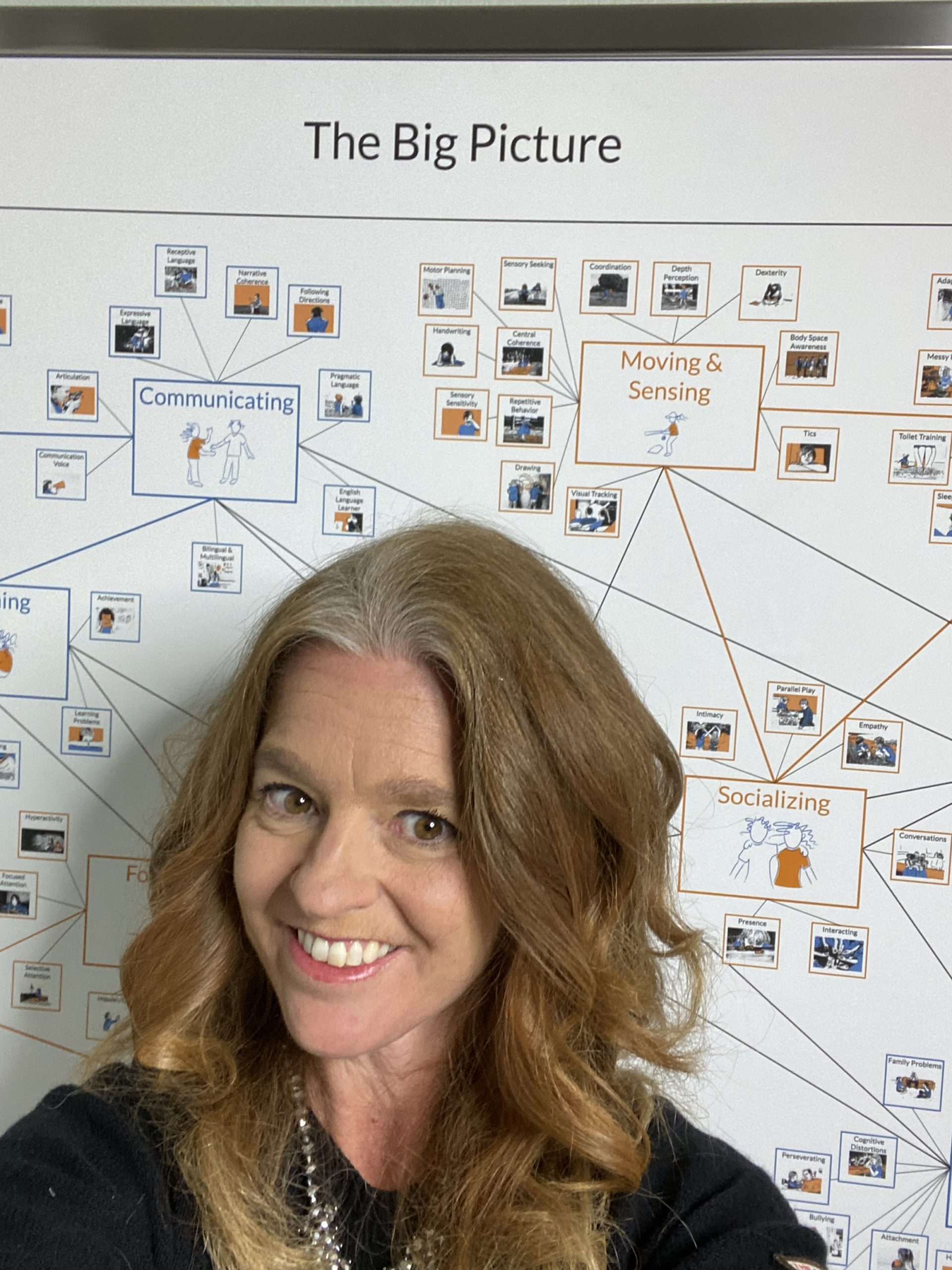There is a common misconception that people with autism do not have empathy.
TRUTH: Perspective taking may be challenging for individuals with autism.
Why? Many people with autism see the world differently.
They may tend to…
- Notice objects before the people in a room
- Focus on details about a person’s appearance (clothing, hair style, glasses) rather than remembering what a person looks like
- Forget people’s names
- Lose attention or focus in conversations
- Misunderstand what someone else is thinking or feeling
HERE’S WHY: It’s not that people with autism do not CARE how others feel. Instead, it is about perspective taking, also referred to as Theory of Mind (ToM). Many individuals on the Autism Spectrum find it difficult to understand someone’s thoughts or motivations. If someone is crying over a bad grade on a test, a person with autism might think,
“Why is Ella crying over a test? An adult might then say, ‘how would you feel if you got that bad grade?” And the person with autism might say, “If I got a low grade on that test, I wouldn’t care.”
Although that sounds insensitive, in reading this you can hear what is happening. The person with autism is misunderstanding that someone else could have a different perspective than one’s own. This simple misconception may cause people with autism not to demonstrate or show empathy. They may not jump up to help or offer a tissue to a crying friend. However, this is due to a cognitive or brain difference, not matters of the heart.
People with autism often care very much; they just may not understand.
GOOD NEWS: With the right coaching and therapy, individuals with autism can learn to interpret another person’s thoughts and motivations more clearly. This will increase their ability to show empathy.
At Clear Child Psychology, we understand the nuances between things like how someone might FEEL empathy vs UNDERSTAND empathy. We evaluate those nuances with our proprietary diagnostic tool, CADE, which helps us map out a more effective therapeutic approach for supporting individuals struggling with empathy.
If you would like to understand if your child is struggling with empathy, and how you can help, book a FREE Discovery Session today.
Learn more about empathy and autism with this article.
Go deeper into common misconceptions about autism in our previous Autism Myth blogs:
Autism Myth #1: People with Autism Don’t Have Social Motivation
Autism Myth #2: My Kid is Too Smart to Have Autism
Autism Myth #3: My Doctor or School Ruled Out Autism




